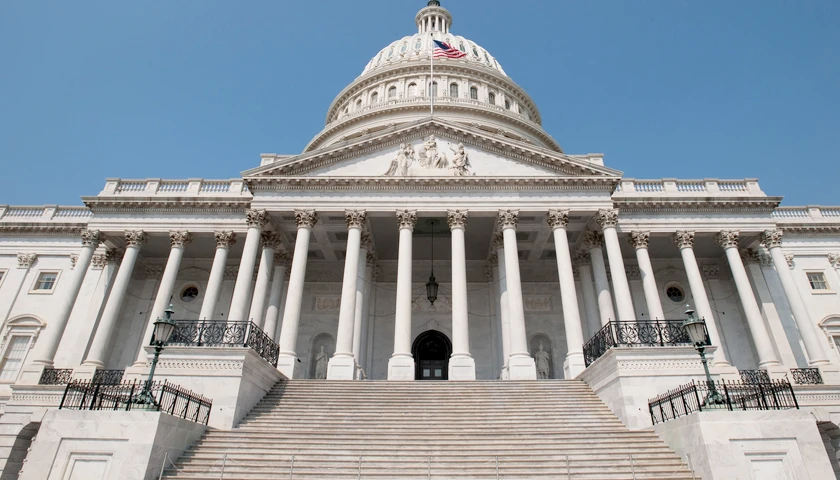by Daniel Lipinski and Philip Wallach
Heading into Election Day, we hear constantly that the presidential candidates are mortal threats to American democracy. Anxieties about Donald Trump’s role in the Jan. 6, 2021, rampage at the U.S. Capitol and his declaration that he would act as “dictator for a day” are countered by Elon Musk’s warning that if Harris wins, “this will be the last election,” or alarms that Harris’ designs on overhauling the Supreme Court will lead to an end to the rule the law.
The very idea that our republic’s future hangs on the outcome of a single presidential contest, however, reveals the deeper, unacknowledged, underlying danger: a Congress incapable of performing its constitutional duties as our country’s lawmaking body and the guarantor of our representative democracy.
If Congress is a nonfactor, with members performing as noisy but mostly irrelevant partisan foot soldiers, then getting your preferred candidate into the Oval Office is the only way to advance the causes you care about or defend the principles you cherish most. That explains the panic (on both sides) at the prospect of losing the presidential race. And these feelings of dread explain the embrace of extreme tactics in the pursuit of victory, including talking ourselves into the idea that America is on the precipice.
People who have given themselves over to hysterical presidentialism are reacting to a caricature of the legislative branch as impotent. But it is a caricature with some real resemblance to reality because Congress – especially the House – has been hollowed out.
The legislative process frequently fails, ceding power to the executive and judicial branches. When legislation is passed, it is often through a short-circuited process that leaves most members on the sidelines. Often, good bills that reflect bipartisan attempts to tackle important problems never get a chance because the rules of the House have been rigged to make it easy for party leaders to thwart these efforts.
Party leaders, who are focused on elections most of all, tell their co-partisans that they are doing this “for the good of the team” because if they wait, they will be in a better position to achieve their ideal policy after the next election. This happens in Congress after Congress, leading members to become increasingly disengaged, resulting in even more dysfunction. So Americans can be forgiven if they’ve come to think of their legislature as a place where their representatives only flatter or insult the real policymakers in the executive and judiciary.
The frustrations of many members of Congress about the institution’s dysfunction and their lack of input in the legislative process have been evident in recent years in public comments and in private conversations we have had with them. But members should not despair because they have the ability to revitalize the institution and restore the resiliency of our democracy by changing the way the House operates. All it will take is a majority of members to vote to institute revisions to rules and procedures which will promote bottom-up, bipartisan lawmaking. We spent much of 2024 helping lead a Hoover Institution/Sunwater Institute task force of former members, former staffers, and other congressional experts, which developed recommendations for reforms that would be most effective for achieving this and would be possible in the current political climate.
Many of our central recommendations revolve around facilitating greater access to the floor of the House for legislation and amendments that have the support of broad, bipartisan majorities. In the current Congress, House members have struggled to get floor consideration for many pieces of popular legislation. The upshot is that the 118th Congress may go down as the most unproductive on record in terms of legislative output. As for the limited number of significant laws that have been passed, the rise of suspension of the rules to move these bills in the House has given even more discretion to party leaders to bypass committees and avoid amendments in the legislative process. This shutting out of the people’s representatives cannot continue.
We recommend four changes to House rules:
- Create a new procedure called the Guaranteed Regular Order to ensure floor consideration for legislation that has been subject to a rigorous process of committee hearings and markups, and then secure bipartisan support. This would facilitate and reward greater participation by members in the legislative process.
- Institute a requirement that any amendment with 10 cosponsors from each party gets a vote during floor consideration of legislation.
- Revise the discharge petition rules to diminish party leaders’ opportunities to intimidate members by allowing signatures to remain private until the petition has enough support to succeed. (This was the rule until 1993.)
- Fix the consensus calendar rule, which was created in 2019 to require floor consideration for legislation that garners co-sponsorship from two-thirds of House members. Loopholes have undermined the rule’s efficacy and must be eliminated.
We also recommend a number of changes to procedures used in the House to make committees stronger, more substantive, and more effective, to give members more time for legislative work, and to promote bipartisan collaborations.
For members fed up with the diminishment of their roles as representatives and the House as a vital constitutional institution, implementation of these recommendations will start to turn things around. Revitalizing the House will also give the American people confidence that they can rely on Congress to address their policy concerns and defend American democracy. If members fail to act, the worst fears about a presidential election ending our democratic republic may be realized soon enough. For now, it’s not too late.
– – –
Daniel Lipinski is a distinguished visiting fellow at the Hoover Institution, Stanford University. He represented the Third District of Illinois in the U.S. House of Representatives from 2005 to 2021. Philip Wallach is a senior fellow at the American Enterprise Institute and the author of “Why Congress” (Oxford University Press, 2023).






